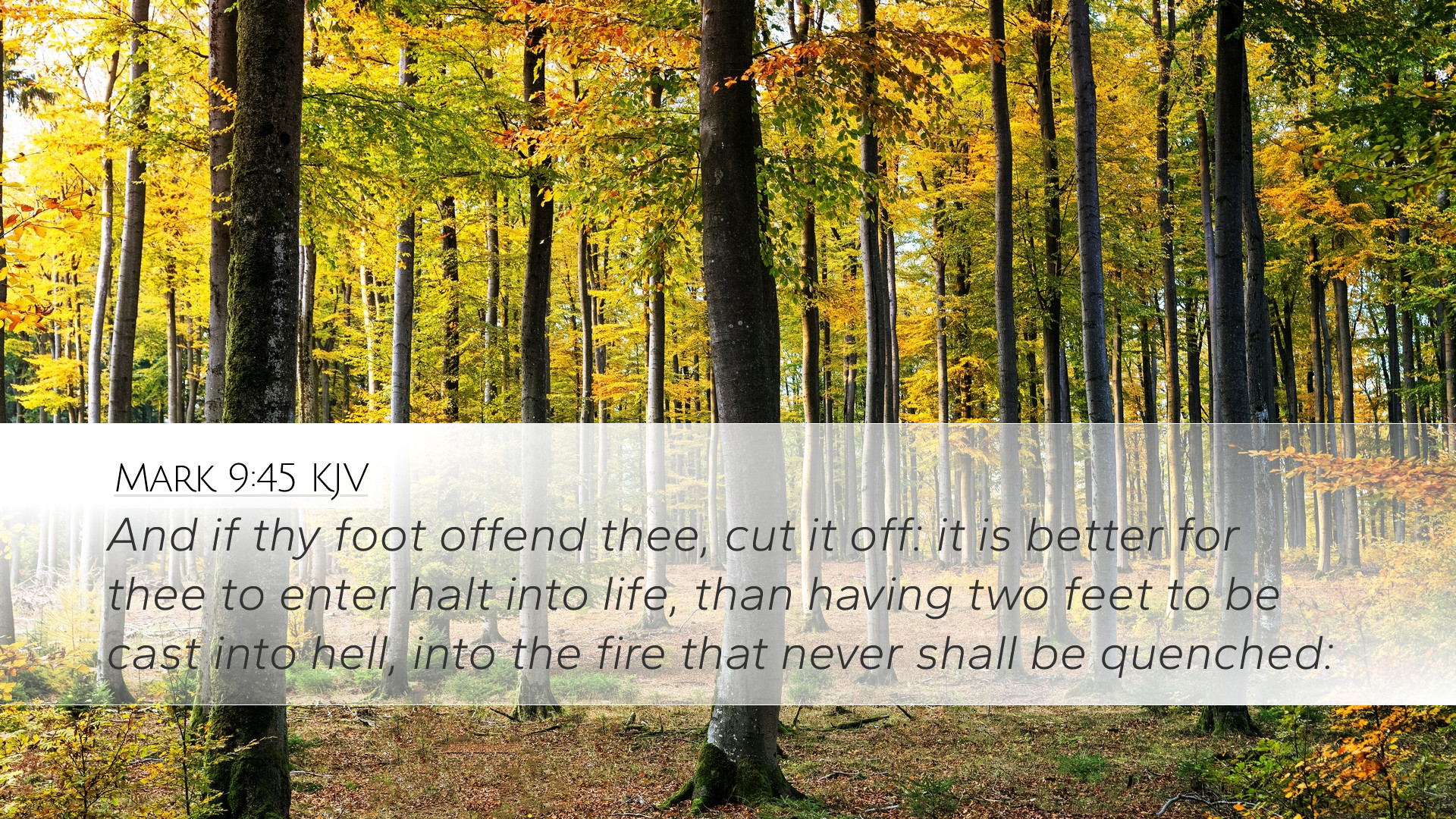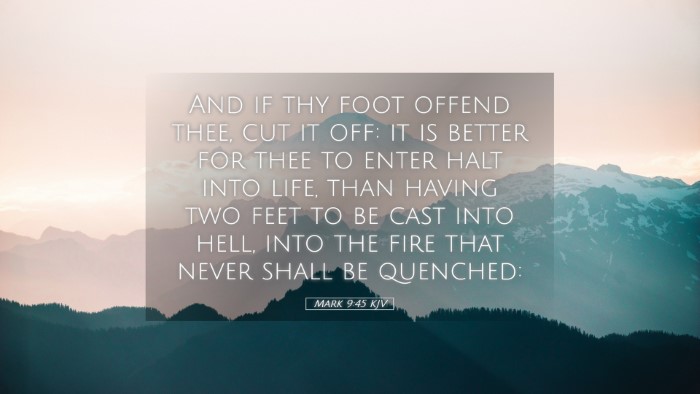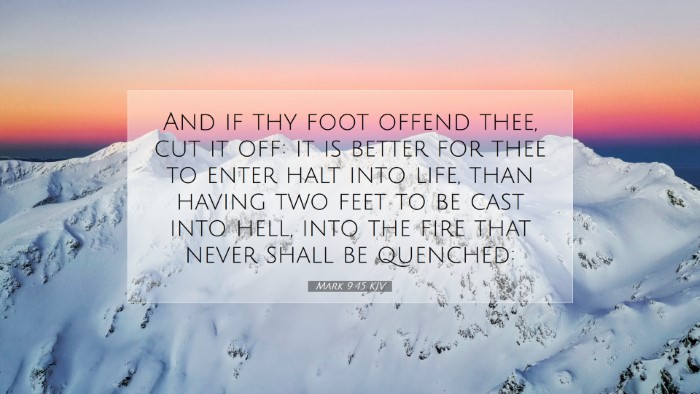Commentary on Mark 9:45
Mark 9:45 states: "And if your foot causes you to stumble, cut it off. It is better for you to enter life lame than to have two feet and be thrown into hell."
Introduction
This verse from the Gospel of Mark reflects Jesus' teaching on the severe consequences of sin and the need for radical measures to deal with it. The imagery of cutting off a body part serves to illustrate the seriousness with which we ought to tackle sin in our lives.
Contextual Analysis
The immediate context of this verse falls within a larger discourse on humility, servanthood, and the peril of leading others into sin. Jesus emphasizes the importance of avoiding anything that would lead one away from the Kingdom of God, stressing the value of life eternal over physical existence.
Matthew Henry's Commentary
Matthew Henry articulates that this verse is an admonition about the seriousness of sin and the choices we must make to follow Christ. He suggests that physical possessions and relationships, represented by the "foot," can lead us astray. Henry emphasizes that, while painful, it is essential to rid ourselves of anything that impedes our spiritual walk. He posits that the severity of Jesus' words serves to shock us into understanding the eternal stakes of our decisions.
Albert Barnes' Commentary
Albert Barnes interprets this call for drastic action as a metaphorical instruction for the believer. He stresses that 'cutting off the foot' symbolizes the necessity of renouncing sinful practices or relationships that lead to spiritual death. Barnes indicates that the reference to hell (or Gehenna) underscores the finality of a life lived in willful sin. He challenges readers to evaluate their lives: what must be sacrificed in our pursuit of holiness and eternal life?
Adam Clarke's Commentary
Adam Clarke further delves into the implications behind the hyperbolic language of Jesus. He notes that the hyperbole is intentional and serves to convey the urgency and intensity of Jesus' message. Clarke interprets the act of "cutting off" not as a literal act, but rather an invitation to self-examination and a serious commitment to repentance. He encourages believers to consider what “foot” might lead them into temptation and to take proactive measures to avoid sin.
Theological Implications
This verse invites serious reflection on the nature of sin and its consequences. The drastic metaphor acts as a waking call to recognize the weight of our actions and the direction of our hearts.
Sin and Its Dangers
The theological underpinnings of this passage resonate with the recognition of sin as a corrupting influence in one's life. Jesus is not merely speaking about physical offenses but is addressing the underlying spiritual issues that lead to separation from God. Whether it is the desires of the flesh, ambitions, or distractions, anything that leads one away from a full relationship with Christ is to be rooted out.
The Cost of Discipleship
Pursuing Christ often requires making difficult choices. Discipleship can demand radical changes in our lifestyles. The call to cut off what hinders us is a challenge for both individual believers and the church at large—to evaluate what practices may be inhibiting the flow of God's grace in our lives. It also serves as a warning against complacency in the Christian life.
Practical Applications
- Self-Examination: Believers are encouraged to continually examine their lives and assess what is leading them away from God.
- Community Accountability: Being part of a faith community that encourages accountability can assist individuals in walking a path that avoids temptation.
- Radical Obedience: This passage calls for radical obedience to God, which may involve tough decisions about relationships, habits, and priorities.
Conclusion
Mark 9:45 challenges believers to consider the severity of sin and the radical lengths to which one must go to ensure fidelity in following Christ. With insights from respected commentators like Matthew Henry, Albert Barnes, and Adam Clarke, we grasp the significance of this exhortation. The pathway to life may involve sacrifice, but such sacrifices are made not in vain; they are essential steps towards the fulfillment of the transformative power of the Gospel in our lives.


